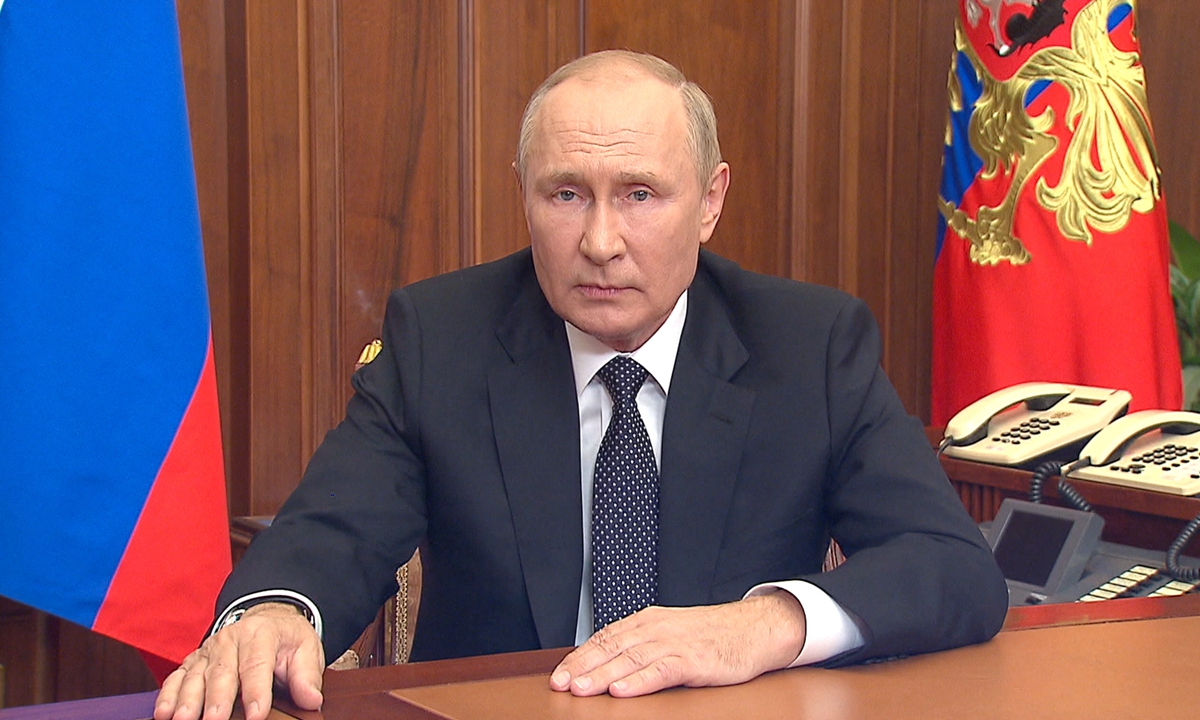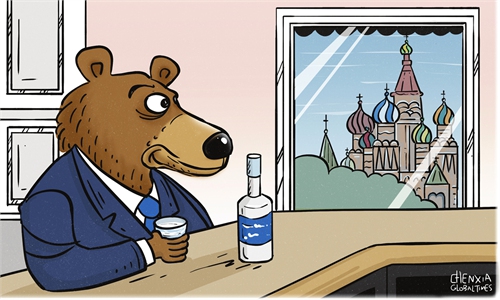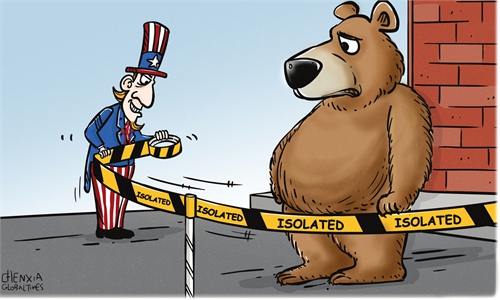
The picture released on September 21, 2022, by the Kremlin shows Russian President Vladimir Putin speaking during a televised address to the nation in Moscow. Photo: AFP
Russian President Vladimir Putin announced a "partial mobilization" of troops in an address to the nation on Wednesday morning. The Russian Defense Ministry said citizens who are currently in the reserve, and above all those who already served in the armed forces are subject to conscription.
Putin expressed his support for scheduled referendums across four regions, including Donetsk. He stressed that "to protect Russia and our people, we of course will use all the means at our disposal." One day ago, former Russian president Dmitry Medvedev wrote on Telegram that attempts to encroach Russia's territory is a crime and Russia could use "all means of self-defense." Western analysts believe that this includes nuclear weapons.
Russian Defense Minister Sergei Shoigu also delivered a speech after Putin. He said 300,000 reservists will be mobilized and Russia had 25 million potential fighters at its disposal. He also confirmed that 5,937 Russian soldiers have died in Ukraine since February. Currently, there are 200,000 Russian troops in Ukraine, which is far below the number of Ukrainian forces. As a result, the Russian military has been outnumbered and faced with a passive situation recently.
The two Ukrainian eastern regions which have declared "independence," Donetsk and Luhansk, as well as the Russia-occupied Kherson and Zaporizhzhia oblasts, announced on Tuesday that they will hold referendums to join Russia. The referendums will be held from September 23 to 27. The US and the West rushed to condemn their moves and declared that they will not recognize the result.
Some Western analysts believe that the referendums and Russia's acceptance of the four regions will serve as Russia's legitimate ground to escalate the war. Some analysts even stressed that this adds to the possibility that Putin will even resort to nuclear weapons to strike Ukrainian troops. Bloomberg, citing experts, said that the "annexation" will give Putin the legal pretext that he needs to threaten the use of nuclear weapons for the protection of Russian territory. The expert also said, "either Ukraine retreats, or there will be nuclear war."
The Ukrainian armed forces have continued their offensive with high morale after the recent victory in the northeastern Kharkiv region. It is reported that the Ukraine's armed forces have crossed the Oskil River and occupied the eastern bank. As Russia has not carried out a full-scale war mobilization before and invested limited military resources and troops in Ukraine, its performance of late has been passive. An analysis on Tuesday said that with the Donbas and other regions holding a referendum to join Russia, Putin may officially declare the escalation of the "special military operation" in Donbas to "war" on Ukraine. But Putin's speech on Wednesday continued to use the term "special military operation," potentially meaning the situation was not at its worst.
However, the next development of the situation is fraught with pessimism. Hostility between Russia and NATO has actually intensified. The determination of the US and the West to defeat Russia is very firm. For Putin, there's no turning back other than winning. In other words, this conflict has become that of a life-and-death nature. Therefore, neither Russia nor NATO can intimidate or overwhelm the other. Such a clash of wills is very likely to reach a limit point, and at that point, it is possible to use all means available for the victory of one's own side.
Shortly after the breakout of the Ukraine war, some Western analysts cautioned not to push Putin and Russia into a dead end because Russia is a nuclear power. This view may be unpopular in Western politics, but it does reflect a kind of rationality. Just imagine, when Putin and Russian soldiers believe that losing the war may lead to a collapse of the government and a purge on them in which their lives cannot be guaranteed; when the Russian people believe that defeat in the war would mean that their country would disintegrate again and there will be a series of fighting surrounding the new regime, they will take the Ukraine war as a new "Great Patriotic War" to fight it to the end.
The Ukrainian armed forces equipped by the West have become stronger, but their counteroffensive doesn't mean they can reshape the outcome of the war. When the war turns to a life-and-death struggle, if the West wants to win the final victory, it needs to transcend the confidence and strength that nuclear weapons have given to Russia.
Undoubtedly, in terms of morality and the actual interests of mankind, the Russia-Ukraine conflict should not be escalated into a nuclear war at any point. That would open a Pandora's Box, and would inevitably lead to a series of unimaginable consequences.
Nonetheless, none of the Russian leaders have explicitly expressed that they would use nuclear weapons. Putin said, "When the territorial integrity of our country is threatened, we will certainly use all the means at our disposal." This has been interpreted as Russia's readiness to use nukes should the war escalate.
An emergency brake needs to be put on the situation in Ukraine at a time when the scale of the war is still manageable. There needs to be a ceasefire and negotiations rather than an ever-increasing showdown between Russia and NATO. Please don't forget that there will be no absolute winner or loser in a military conflict between nuclear powers. Whoever tries to completely overwhelm the other side must be crazy.
The author is a commentator with the Global Times. opinion@globaltimes.com.cn



